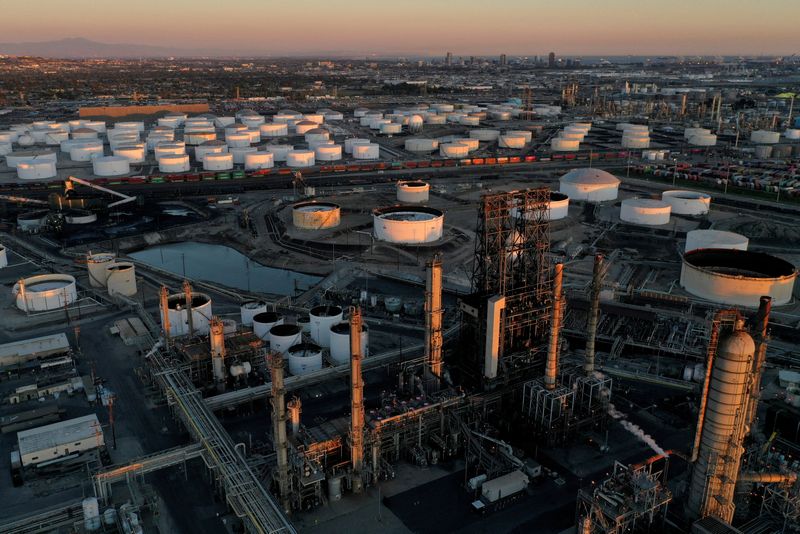By Laila Kearney
NEW YORK (Reuters) -Oil prices rose about 1% on Monday, spurred by the prospect of strong summer driving demand and as tensions in the Middle East and drone attacks on Russian refineries led to concerns about supply.
An easing U.S. dollar added to the crude price strength.
Brent futures for August delivery settled at $86.01 a barrel, gaining 77 cents, or 0.9%. U.S. crude settled at $81.63 a barrel, gaining 90 cents, or 1.1%
Both benchmarks advanced about 3% last week for their second consecutive weekly upswing.
"The chief underlying reason behind the price strength ... is the growing confidence that global oil inventories will inevitably plunge during the summer in the northern hemisphere," said Tamas Varga of oil broker PVM, referring to seasonal demand for oil products.
After last week's big decline in U.S. crude and gasoline inventories, [EIA/S], traders are waiting to see whether the report due on Wednesday will provide further evidence of sustained strong gasoline demand, said Bob Yawger, director of energy futures at Mizuho in New York.
"It has to sustain for this positive narrative to continue in the market," said Yawger, adding that the growing electric vehicle market is eroding gasoline's share of the transportation market.
The gasoline-led rally could taper off in the coming weeks as inflation eats into summer travel spending, said Jim Ritterbusch of Ritterbusch and Associates. "We still expect a significant falloff in demand next month especially with the recent uplift in retail pricing further curtailing vacation plans," Ritterbusch said.
Geopolitical risks in the Middle East and an increase in Ukrainian drone attacks on Russian refineries also underpinned oil prices.
EU countries on Monday agreed on a new package of sanctions against Russia over its war in Ukraine, including a ban on reloading Russian liquefied natural gas (LNG) in the EU for further shipment to third countries.
An easing U.S. currency made dollar-denominated commodities such as oil more attractive to buyers using other currencies.
The dollar weakened from a near eight-week high as traders went back on alert for intervention to support the yen after the Japanese currency danced with the 160 per dollar level.

The dollar index, measuring performance against six major currencies, had climbed on Friday and was up slightly on Monday after data showed U.S. business activity at a 26-month high in June.
In Ecuador, state oil company Petroecuador has declared force majeure on deliveries of Napo heavy crude for export after the shutdown of a pipeline and oil wells owing to heavy rain, sources said on Friday.